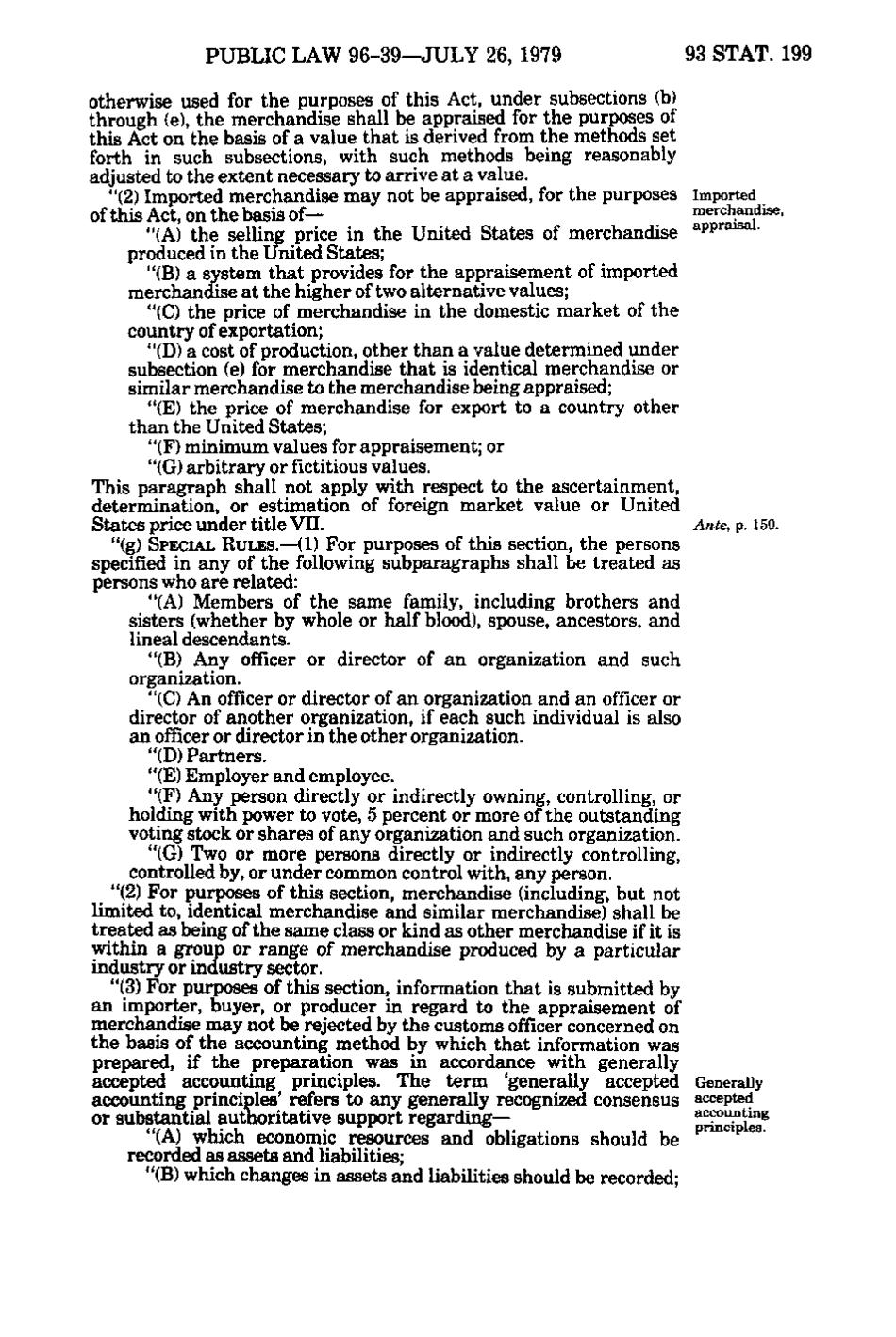PUBLIC LAW 96-39—JULY 26, 1979 otherwise used for the purposes of this Act, under subsections (b) through (e), the merchandise shall be appraised for the purposes of this Act on the basis of a value that is derived from the methods set forth in such subsections, with such methods being reasonably adjusted to the extent necessary to arrive at a value. "(2) Imported merchandise may not be appraised, for the purposes of this Act, on the basis of— "(A) the selling price in the United States of merchandise produced in the United States; "(B) a system that provides for the appraisement of imported merchandise at the higher of two alternative values; "(C) the price of merchandise in the domestic market of the country of exportation; "(D) a cost of production, other than a value determined under subsection (e) for merchandise that is identical merchandise or similar merchandise to the merchandise being appraised; "(E) the price of merchandise for export to a country other than the United States; "(F) minimum values for appraisement; or "(G) arbitrary or fictitious values. This paragraph shall not apply with respect to the ascertainment, determination, or estimation of foreign market value or United States price under title VII. "(g) SPECIAL RULES.—(1) For purposes of this section, the persons specified in any of the following subparagraphs shall be treated as persons who are related: "(A) Members of the same family, including brothers and sisters (whether by whole or half blood), spouse, ancestors, and lineal descendants. "(B) Any officer or director of an organization and such organization. "(C) An officer or director of an organization and an officer or director of another organization, if each such individual is also an officer or director in the other organization. "(D) Partners. "(E) Employer and employee. "(F) Any person directly or indirectly owning, controlling, or holding with power to vote, 5 percent or more of the outstanding voting stock or shares of any organization and such organization. "(G) Two or more persons directly or indirectly controlling, controlled by, or under common control with, any person. "(2) For purposes of this section, merchandise (including, but not limited to, identical merchandise and similar merchandise) shall be treated as being of the same class or kind as other merchandise if it is within a group or range of merchandise produced by a particular industry or industry sector. "(3) For purposes of this section, information that is submitted by an importer, buyer, or producer in regard to the appraisement of merchandise may not be rejected by the customs officer concerned on the basis of the accounting method by which that information was prepared, if the preparation was in accordance with generally accepted accounting principles. The term 'generally accepted accounting principles' refers to any generally recognized consensus or substantial authoritative support regarding— "(A) which economic resources and obligations should be recorded as assets and liabilities; "(B) which changes in assets and liabilities should be recorded;
93 STAT. 199
Imported merchandise, appraisal.
Ante, p. 150.
Generally accepted accounting principles.
�
